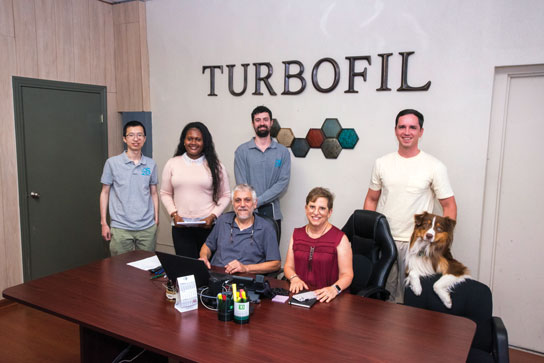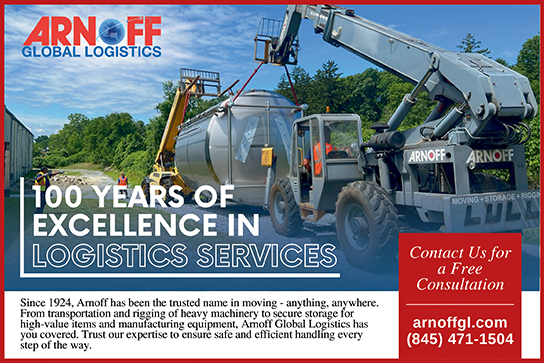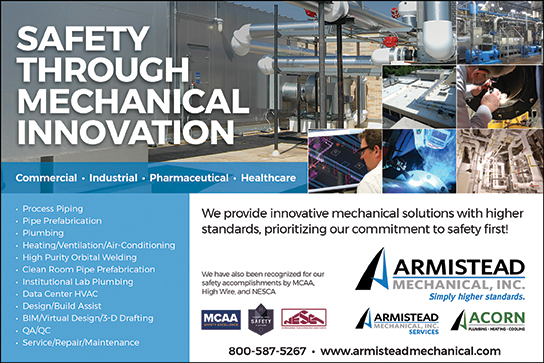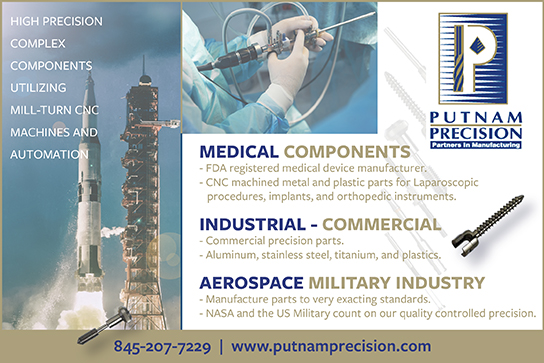Solving Complex Packaging Challenges

For more than 25 years…
TurboFil Packaging Machines has earned a reputation for customization, precision, and creativity in automated liquid filling and assembly. Led by husband-and-wife team Deborah Smook and Eli Uriel, the Mount Vernon–based company engineers liquid filling, capping, and assembly equipment for pharmaceutical, cosmetic, chemical, and defense applications.
Known for solving complex packaging challenges, TurboFil specializes in filling liquids with difficult viscosities and delivers high-performance, Made-in-the-USA machines trusted by research labs, drug manufacturers, and contract packagers across the country and around the world.
Recently, HV MFG sat down with Deborah and Eli (pronounced “Ellie”) to learn how they built TurboFil, the opportunities that shaped its direction, and the values that continue to drive its success today.
The Origin Story
HV MFG: Let’s start at the beginning. TurboFil launched in 1999. What did those first months look like?
Deborah: Eli was working for a packaging company that was going out of business when a client approached him directly. That gave us the confidence to start. We had a toddler, a baby on the way, and a house under construction. I was working full time in pharmaceutical consulting and helped at night after the kids were asleep. Technically Eli was the only employee at the beginning.
Eli: I always thought we could build a business if the opportunity appeared. We started in a small room inside a machine shop with a few tools and one machine. Our first project was a cosmetic powder filling system. It was humble, but it got us moving. We named the company TurboFil to signal speed and precision, two things we aim to deliver on every job. Very quickly the limitations of that shared space became clear, so we moved to our own facility.
HV MFG: That is a lot to juggle with young children at home. Before we get into the business, tell me a little about your partnership. How did the two of you meet?
Deborah: We met at folk dancing. Someone talked him into coming, and we became dance partners. At that time, I was living in Manhattan and Eli was in Queens, having recently moved from Israel. We were dance partners and friends for years before we started dating. We married in 1996, and by the time we launched the company we already had a strong foundation, both personally and professionally.
Eli: I did not dance much before, and not much after the wedding. Debbie kept dancing, and she still does today. It is something she enjoys, even if my time on the dance floor was short lived.
HV Mfg: Eli, you mentioned moving here from Israel and your time in the Army. What was your background before starting TurboFil and how did you end up in New York?
Eli: I studied mechanical engineering with a background in electronics. I learned a trade in high school and always liked working with my hands. I served in the Israeli army for four years in military communications, where I gained technical skills that stayed with me. Afterward, I moved to the United States because my brother was here. Though we did not connect for several years and we still live on opposite coasts, I settled in New York and worked for packaging and machine building companies in the Bronx and in New Jersey.
HV MFG: That is fascinating. Deborah, I understand you are also an engineer. Tell us more about your background.
Deborah: I have a degree in electrical engineering from Tufts and an MBA from Wharton.
HV MFG: That is an impressive resume. What made you decide to go into engineering, and what was your experience pursuing a career in a technical field?
Deborah: I have always been good at math and science. When it came time to consider colleges, I asked my dad what I should study, and he casually said, “You should be an engineer.” I asked what that meant, and he gave a brief answer. I figured I would find out along the way, and I loved it. The coursework always came easily to me, and it was a great choice. The MBA from Wharton broadened my interests and shifted my thinking about the business side of engineering.
After business school, I consulted for pharmaceutical and medical device companies. That work shaped how I think about our clients, the quality of our products, and our adherence to compliance standards. It also gave me perspective on the opportunities that existed for small companies that could deliver custom solutions. Eventually, I was able to bring all that together here.

Division of Roles and Partnership
HV MFG: Deborah, you mentioned helping behind the scenes while still consulting. When did you decide to join full time, and how did the two of you divide responsibilities?
Deborah: I helped behind the scenes for a while as the team was growing. I would bring the kids to the shop, and since I was also an engineer, I would take home projects here and there to help. One day, a friend told me I had three full time jobs – my day job, the kids, and TurboFil – and that was one too many. I wasn’t going to give up the kids, so we decided I would jump in full time and see how it goes. So far, it’s going pretty well.
Eli: Our roles haven’t changed since the beginning. I handle the technical work, and Debbie handles everything else. That split has never changed, and we are still married.

Strategic Pivots and Growth
HV MFG: Once you were on your feet, what helped TurboFil stand out in the market?
Deborah: We started in cosmetics but quickly recognized larger opportunities. We build custom machinery that solves specific manufacturing problems, especially for difficult-to-fill liquids. Whether it’s thick, stringy, foamy, or contains particulates, we develop automation systems that meet the exact needs of our customers. That positioned us perfectly for highly regulated markets like pharmaceuticals and diagnostics. Unlike cosmetics, these products are harder to offshore, and my background in pharma made the move feel natural.
Pharmaceutical customers have more specialized and more complicated needs. The standards are higher, and so is the value you can create if you meet them.
Eli: The pivot raised the bar for our engineering, documentation, and quality systems. We learned the market by going to shows, talking with users, and setting ambitious goals for what our machines had to do. We built a reputation for machines that meet exact needs without shortcuts.
NAVIGATING CHALLENGES
HV MFG: It seems like you have been able to adapt quickly. How did that agility help when the business faced bigger economic challenges?
Deborah: It has not always been easy. Business was difficult during the 2008 financial crisis. Our longtime bank refused to issue a letter of credit for an international project, and it felt like no one would take our calls. We were worried but we also saw the opportunities ahead.
Right now, the tariffs are a double-edged sword. We benefit from stronger interest in buying American product, which has helped open doors, but material costs rose. Our size and our skilled workforce are how we remain agile. We pivot quickly and develop new solutions while some larger companies take longer to sort things out.
Eli: Global issues like tariffs, supply chains, and downturns always test us, but being small helps us adapt.
HV MFG: In addition to tariffs and general disruption, what challenges are most pressing?
Deborah: Workforce remains the hardest. We care deeply for our staff, and it really is like a family, complete with the family dog, Teddy. But technical talent is scarce, and we have lost good people to larger companies. In some ways it is a source of pride because we have helped launch careers, but hiring, training, and retaining high-quality talent requires a lot of attention, time, and energy. We are always thinking ahead, working to build partnerships with the county and within the community, and consistently reevaluating what we can do to evolve as the workforce changes.
We named the company TurboFil to signal speed and precision, two things we aim to deliver on every job.

Innovation and Future Opportunities
HV MFG: Talk a little about technology and how the products and industry demands have changed over the years.
Deborah: We are not bound by our last machine or industry. As the market evolves, so do we. A few years ago, we leaned into unit dose nasal products and developed a fully automated system that fills and stoppers the vials and assembles the actuator system. It requires exacting inspections to ensure that every device delivers the expected dose. This represents one of the fastest-growing delivery methods and is becoming increasingly important in areas like respiratory care, mental health, and even vaccines, in addition to drug overdose reversal.
Eli: And now we are a leading manufacturer in that space. It is one of the technologies we are most proud of.
HV MFG: What is ahead for TurboFil as you continue to grow?
Deborah: One exciting development is our partnership with Ravona, a global leader in containment and aseptic barrier systems. Through this partnership, we offer both standalone containment solutions and fully integrated systems. Customers can now purchase isolators and glove integrity testers directly through TurboFil or customize packages that combine these technologies with our aseptic filling and assembly machines. It is a natural extension of our goal to deliver end-to-end customization.
Eli: It is powerful for our customers too because regulatory compliance is built-in and lead times are shorter. The machines and isolation components work together from the start, which helps streamline installation and validation.
Deborah: We are seeing the efficiencies of these machines around the world, and we’re excited to exhibit together at INTERPHEX 2026, the leading global pharmaceutical and biotechnology event, so more people can see how full-system aseptic solutions work in practice.

Culture
HV MFG: Let’s shift gears a little. Talk a little about the culture here at TurboFil and how would you describe your approach to leadership?
Deborah: I am a big-picture thinker and very experimental. If we want to try a tool or a new approach, we try it. I would like to think that is my approach to the team as well. When we hire, we look for curiosity and for employees who are excited about solving new, complex problems. We are a small company and work closely with each other every day. It is important to be there for our team and create an environment where we like to come to work. Hiring the right people creates momentum.
Eli: I am more hands-on, Debbie oversees all aspects of the business, and I like mentoring engineers and working together on projects that expand our limits. When an engineer has full machine responsibility, it gives them a broader view and direct customer contact. We value our family-style culture. Deborah bakes birthday cakes, one of our guys cooks breakfast on Fridays and we celebrate outside of the shop. It’s a supportive environment encouraging each of us to excel and that leadership shows in our final product.
Closing Reflections
HV MFG: You’ve shared quite a journey, from a borrowed shop space to high-level pharmaceutical partnerships. Looking back, what stands out most?
Deborah: Building a business while building a family wasn’t the plan, but I wouldn’t trade it. We are proud of what we have built and the team we have assembled. We deliver innovation at a world-class level, and it still feels like home.
HV MFG: Thank you both for sharing your story.
When we hire, we look for curiosity and for employees who are excited about solving new, complex problems. We are a small company and work closely with each other every day. It is important to be there for our team and create an environment where we like to come to work.




